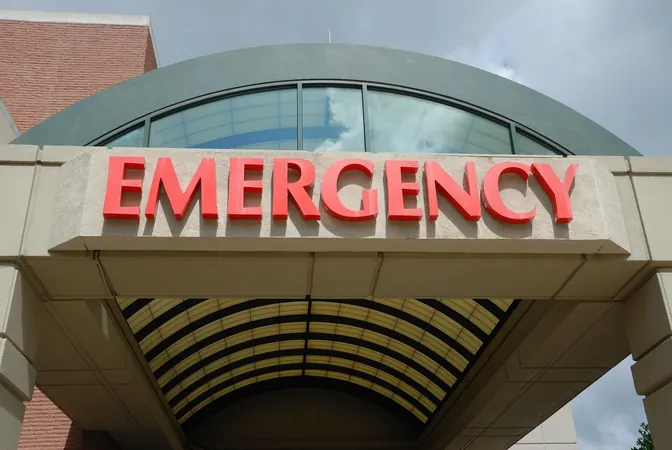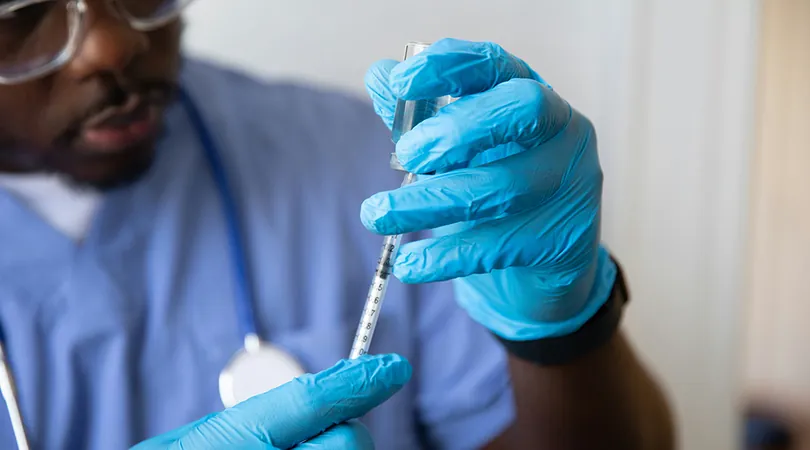
Alarming Rise in Emergency Room Visits Linked to Pregnancy Hypertension: What You Need to Know!
2024-10-10
Author: Nur
A startling new study reveals that hypertensive disorders of pregnancy, the second leading cause of maternal mortality globally, are prompting an alarming increase in emergency room visits among pregnant individuals.
Between the years 2006 and 2020, researchers documented a staggering 76% rise in emergency encounters related to pregnancy hypertension in the United States, escalating from 31,623 visits to a concerning 55,893. Hospital admissions nearly doubled during this period, surging from 17,338 to 43,563. The study, published in JAMA Network Open, highlights a critical public health issue that mandates immediate attention.
Understanding Pregnancy Hypertension
Hypertensive disorders during pregnancy, which include conditions such as preeclampsia, gestational hypertension, and eclampsia, arise when elevated blood pressure poses serious risks to both mothers and their newborns. Alarmingly, these conditions are associated with 6.3% of all pregnancy-related deaths in the U.S.
Senior author Erica Marsh, M.D., an esteemed professor at the University of Michigan Medical School, explains that many women may not exhibit warning signs, making it imperative for healthcare providers to recognize and address these risks proactively during prenatal care. “Hypertensive disorders of pregnancy can develop suddenly, even in seemingly healthy women,” Dr. Marsh warns. "These unexpected developments underscore the importance of early detection during routine care."
Emergency Room Disparities
The study also revealed troubling disparities concerning emergency room utilization among different racial and ethnic groups. Black, Hispanic, and Asian or Pacific Islander individuals were found to rely more heavily on emergency services for hypertensive disorders of pregnancy, pointing to potential barriers in accessing timely and appropriate prenatal care.
Lead author Courtney Townsel, M.D., now at the University of Maryland, emphasizes that these disparities suggest a critical gap in healthcare access. “Limited access to outpatient care can lead to reliance on emergency rooms, reflecting systemic barriers in the health care system,” she asserted.
Preventive Actions and Recommendations
In response to these rising figures, the American College of Obstetricians and Gynecologists recommends that severe hypertension in pregnant women be managed within 30 to 60 minutes of diagnosis. This prompt intervention is crucial in preventing serious complications like stroke, seizures, and even maternal and neonatal death.
Healthcare professionals urge expectant mothers to remain vigilant and openly communicate with their providers regarding any symptoms that may signal hypertensive disorders. Increased awareness and education about the signs and risks associated with pregnancy hypertension can empower individuals and potentially save lives.
As the data shows a concerning trend, it is vital for both healthcare providers and society as a whole to ensure that all pregnant individuals, particularly those from underrepresented groups, have access to essential prenatal care to mitigate the risks associated with hypertensive disorders.
Will you or someone you know be affected? Stay informed and prioritize prenatal care to safeguard the health of mothers and babies alike!





 Brasil (PT)
Brasil (PT)
 Canada (EN)
Canada (EN)
 Chile (ES)
Chile (ES)
 España (ES)
España (ES)
 France (FR)
France (FR)
 Hong Kong (EN)
Hong Kong (EN)
 Italia (IT)
Italia (IT)
 日本 (JA)
日本 (JA)
 Magyarország (HU)
Magyarország (HU)
 Norge (NO)
Norge (NO)
 Polska (PL)
Polska (PL)
 Schweiz (DE)
Schweiz (DE)
 Singapore (EN)
Singapore (EN)
 Sverige (SV)
Sverige (SV)
 Suomi (FI)
Suomi (FI)
 Türkiye (TR)
Türkiye (TR)